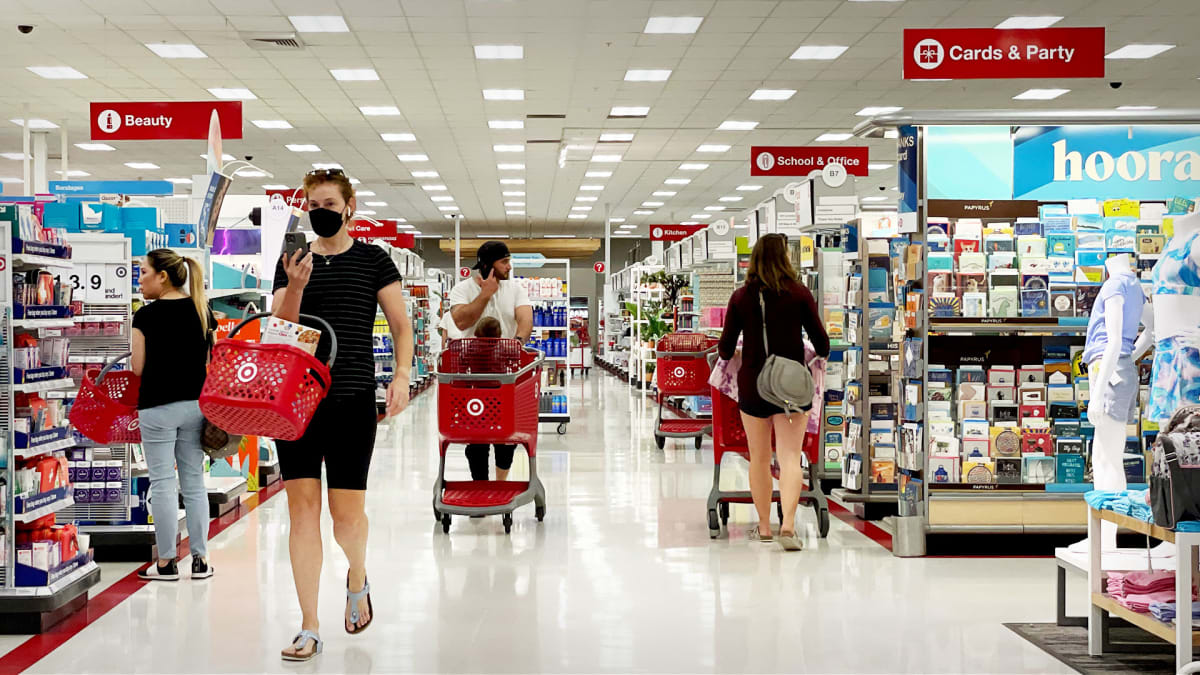
Target Corporation (TGT) CEO Brian Cornell said he does not want to close stores. But...
That implied second sentence dominated a conference call with the media Tuesday to preview first quarter earnings. The Minneapolis-based retailer disclosed that since the start of 2022, inventory shrinkage, which is retail code for all of the stuff people steal from its stores, will have cost Target $1.1 billion in profits by the end of the year.
DON'T MISS: Google Just Launched a Dramatic Gmail Change That Could Negatively Affect Users
If accurate, that’s an astonishing number. And Target said it’s not just theft that has plagued its stores and retailers across the country but also violent crime. Indeed, retailers like Walmart Stores Inc. (WMT), Whole Foods Market (owned by Amazon Inc. (AMZN)), and Nordstrom Inc., (JWN) have closed stores in cities where crime has anecdotally surged in recent years.
But here’s the thing: retailers have rarely said they are shutting stores specifically because of crime. Instead, they use words like “overall performance issues.” For example, Walmart recently announced it was closing four locations in Chicago without ever referring to crime.
Target Drawing a Line
Cornell, though, drew a direct link between crime and closing stores. On top of that, Target threw in specific financial consequences from crime: $500 million loss in profits this year, following a $600 million loss in 2022.
“Safety of our guests and employees are our top priorities,” he said. “We will do everything in our power to keep our stores open.”
The company has hired extra security guards and is placing more and more merchandise behind locked cases.
For example, at the Target store in downtown San Francisco’s Metreon complex, a shopper found basic items like underwear and socks in locked containers that only cashiers can open. The same shopper also witnessed security guards screen people before they entered the store. At one point, the guard turned away a seemingly homeless man.
But has Target reached the point where it will actually close stores? Or is the company bluffing? Despite repeated questions, Cornell would not say.
Some think the retailer has already closed locations because of crime. In any case, Target would not close stores lightly.
Stores Crucial to Target's Strategy
For one thing, physical stores are the only reason why Target was able to eek out a tiny sales gain during a tough first quarter.
The company said store comparable sales grew just 0.7% compared to the first quarter of 2022. At least that’s a gain. And traffic was actually up 0.9%. Digital comparable sales, however, fell 3.4%.
That means Target is increasingly relying on its stores, not its digital operations, to prop up sales during a difficult economy. The company said rising prices from inflation and higher interest rates have prompted shoppers to cut spending, especially on discretionary items like apparel and home accessories.
But overall, despite the boom in e-commerce sales over the years, physical stores still anchor Target’s entire omnichannel strategy.
They serve as distribution hubs where the retailer fills online orders. And Target has added a bevy of drive up and curbside services at stores, allowing consumers to pick up items they ordered online that same day and even return merchandise without having to leave their vehicles.
The company said such same-day services drive customer loyalty, along with exclusive fashion collections and the presence of store-within-a-store concepts like its partnership with Ulta Beauty. In fact, Target said first quarter sales of beauty products, which grew in the high teens, helped offset weakness in other discretionary categories.
This year, the company said it will spend $4 billion to $5 billion on capital investments, including opening 20 stores and remodeling 175 other locations.
The crucial role stores play in Target’s overall strategy is why the company has been working so hard to fight the problem of retail theft and other crime, Cornell told TheStreet.
“Stores are central to the Target story,” Cornell said. “Our stores are our most valuable asset. We’re so committed to protecting our stores.”
“We do not want to close stores,” he said.
Whether crime alone will force Target’s hand is an open question.







